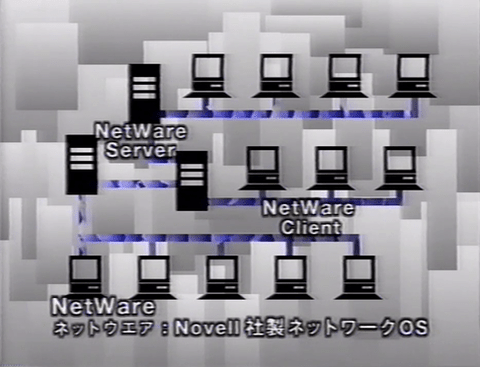#Networking
Text
100 Words You Can Incorporate Into Your Speech To Sound More Elegant ✨
(Common word - Alternate variation)
Beautiful - Exquisite
Happy - Ecstatic
Smart - Intelligent
Big - Enormous
Small - Petite
Good - Excellent
Bad - Deplorable
Nice - Gracious
Tired - Fatigued
Old - Ancient
Rich - Affluent
Poor - Impoverished
Happy - Joyful
Sad - Melancholic
Hot - Sweltering
Cold - Frigid
Busy - Prolific
Loud - Vociferous
Easy - Effortless
Difficult - Arduous
Fast - Swift
Slow - Languid
Brave - Valiant
Funny - Witty
Rich - Opulent
Poor - Indigent
Old - Vintage
New - Novel
Strong - Robust
Weak - Feeble
Pretty - Alluring
Ugly - Unattractive
Clean - Immaculate
Dirty - Sullied
Happy - Jubilant
Sad - Despondent
Young - Youthful
Old - Antiquated
Big - Colossal
Small - Minuscule
Fast - Rapid
Slow - Sluggish
Brave - Fearless
Funny - Hilarious
Clean - Pristine
Dirty - Filthy
Strong - Stalwart
Weak - Debilitated
Happy - Content
Sad - Poignant
Confusing - Perplexing
Typical - Quintessential
Many - Myriad
Everywhere - Ubiquitous
Contradictory - Paradoxical
Showy - Ostentatious
Insightful - Perspicacious
Arrogant - Supercilious
Obscure - Esoteric
Flatterer - Sycophant
Favorable - Auspicious
Joking - Facetious
Indescribable - Ineffable
Wordy - Verbose
Respected - Venerable
Worsen - Exacerbate
Short lived - Ephemeral
Help - Facilitate
Sneaky - Insidious
Confuse - Obfuscate
Begin - Commence
End - Terminate
Start - Inaugurate
Get - Obtain
Give - Bestow
Make - Fabricate
Break - Shatter
Fix - Rectify
Use - Utilize
Look - Gaze
Find - Discover
Tell - Narrate
Ask - Inquire
Leave - Depart
Buy - Procure
Show - Exhibit
Think - Contemplate
Put - Position
Need - Require
Stop - Halt
Talk - Communicate
Like - Adore
Help - Assist
Call - Summon
See - Perceive
Tell - Enunciate
Go - Traverse
Tell - Express
Have - Possess
Feel - Experience
#elegant woman#elegance#elegant#education#educate yourself#networking#social etiquette#social skills#personal improvement#personal development
2K notes
·
View notes
Text
I love Tumblr and Pinterest and YouTube but you seriously need to get off your phone as much as possible if you want to make actual changes. Stop the doom scrolling. Turn off notifications. Turn on DND. Log off. Delete apps. Delete accounts altogether. Unsubscribe from texts and emails. Put time limits on the apps on your phone. Unless social media is making you money, limit it as much as possible. Overloading yourself with information is just another form of procrastination. At some point you actually have to take action. Less consumption, more creation.
#this helps with anxiety too#that’s why I’ve been gone I’ve been out here working#studying#freelancing#building a business#working out#networking#reading#writing#working on my passions#you gotta get after it if you wanna win babes
3K notes
·
View notes
Text
Femme Fatale Guide: How To Gain More Knowledge To Become More Successful, Cultured, & Wordly
Read books, articles, blogs, studies, and journals from credible & fact-checked sources
Watch & listen to evidence-based documentaries and podcasts
Take expert-backed courses and classes (from universities, industry leaders/certified organizations)
Attend forums/lectures from industry leaders museums, libraries, etc. (Virtually or in-person)
Talk to people in different fields and from different walks of life
Travel (globally, domestically, or locally), explore museums, parks, and stores in your area
Ask for feedback on your creative or skill-based projects and work; or insights from trusted people in your life on different situations in your life, from your past, or their greatest life lessons
Remain curious and diligent regarding your pursuit of knowledge. Live as a lifelong student
#higher self#glow up era#glow up tips#knowledge is power#level up journey#level up#femme fatale#dark femininity#dark feminine energy#it girl#the feminine urge#high value woman#high value mindset#dream girl#female excellence#queen energy#female power#networking#career tips#high class#classy life#educate yourself#girl advice#girl blogging#personal growth#self improvement#femmefatalevibe#success mindset#successhabits#study tips
1K notes
·
View notes
Text
Well, it helped that Sybil knew more or less everybody, or at least everybody who was female, of a certain age, and who had been to the Quirm College for Young Ladies at the same time as Sybil. There appeared to be hundreds of them. They all seemed to have names like Bunny or Bubbles, they kept in touch meticulously, they'd all married influential or powerful men, they all hugged one another when they met, and went on about the good old days in Form 3b or whatever, and if they acted together, they could probably run the world or, it occurred to Vimes, might already be doing so.
They were Ladies Who Organize.
Terry Pratchett, Thud!
#samuel vimes#sam vimes#sybil ramkin#thud!#discworld#terry pratchett#women#friendship#female friendships#school#networking#relationships#power#influence#marriage#the quirm college for young ladies#ladies who organize
702 notes
·
View notes
Text
When your father is a network engineer 😂

211 notes
·
View notes
Note
How do you ACTUALLY network? Like the idea of a coffee chat always baffled me. Like a stranger would agree to get coffee with me for me to essentially interview and then what? I guess my bigger question is how do I provide value to them besides buying them coffee? And the whole concept just feels cringe and transactional
I’ll give you two recent examples, one of work and one of a social event.
A friend invited me to a party. I don’t know said friend very well, but we’re on good terms. I said yes cause why not.
I met a girl there who happened to do some very interesting things and had similar interests to me. How did I find that out? I asked her about herself, I found out where she was previously residing, I learned what she did for a living, and I began associating it to the things that I do. She’s from the same city that I want to move to, she now lives 20 minutes from me, and she’s interested in spirituality. My work happened to organise a similar event a week later, which I immediately invited her for. I asked her for her number so that I could send her the invite.
What she immediately liked about me and expressed, was that I don’t use social media, when we agreed to exchange contact info. I explained to her that I’d have to connect her on iMessage/ WhatsApp and not instagram. That allows us to stay in touch much better than on social media.
I left the party earlier than everyone but I looked for her and told her that we should catch up next weekend or whenever she was free. She agreed.
So this is what you learn from example 1:
1. Learn to associate.
When someone tells you that they work in XYZ company, in B city, start by connecting things in your head. Who else do you know works in the same field, could they know each other? What do you know about the work that they do, and if you don’t know much, can you find out more? Most people, including myself, love to talk about what we do at work and what our job entails. Has their work allowed them to travel a lot? If yes, where?
In order to associate, you need to read a lot and learn a lot. You have to understand what’s happening in the world, what the latest news is, because how the hell are you going to continue that conversation?
2. You have to snowball the conversation. The goal is to try and understand WHO this person is. If someone asks you, have you met CSB and you have, you should be able to say yes, this is what she’s interested in, this is what she works in - you should be able to pitch CSB to another person.
Not every single conversation has to be valuable. You also have to decide whether the person in front of you is worth your time.
3. Exchange numbers, not social media. Nothing is going to come out of exchanging instagram or LinkedIn.
4. When you’re leaving the event, look for the person you met and tell them that you’re leaving and that you guys should catch up sometime. If you haven’t exchanged contact info yet, that’s the best way to do it. “Oh let’s catch up again soon! Can I have your number? We can grab a coffee or drink whenever.”
—-
Example 2. I’d gone to a conference a few months ago. I met a young guy, around my age, who works in an accelerator. I’m very interested in the start up world, and he’s working in one of the best ones in the world, at a decent position. He immediately began telling me about recent funding that they did, what sort of start ups they’re looking for, etc. I asked him for more information, which he was super happy to talk to me about.
We’re on very good terms but we live in different cities. I often send him reports because I work in media, and he sends me PDFs and pitch decks. Whenever we’re in each other’s town, we message each other. Otherwise, I make it a point to reach out to him once a month, just casually, to find out what’s happening.
Takeaways from example 2:
5. Scratch each other’s backs. You can’t just get value from the other person, provide them with the same. It doesn’t have to be work related. Let’s say the person you’ve connected with is interested in indie music and you learn that an indie band is playing somewhere - send them a link to the event and tell them that you remembered that they like this genre, and you just wanted to share the info.
6. What’s important to learn is maintaining relationships. I reach out to all my mentors, all my latest connections once a month. That doesn’t mean that I’m necessarily going to meet them face to face, but I just check in and ask how things are going.
So.
Approach. Associate. Snowball. Exchange info. Maintain.
236 notes
·
View notes
Text

📣 let's have a classic vtuber networking thread! 🤝

to participate, just REBLOG ♻️ this post with your PNG and a little bit about you 👋 - let's see how long we can make the chain!

#vtuber uprising#envtuber#envtubers#indie vtuber#vtuberen#networking#vtuber networking#vtuber pngs#vtuber introductions#vtuber intros#twitch#youtube#streamer#live streamer#live streamers#vtubers#vtuber#vroid#3d vtuber#virtual youtuber#mrsmothmom#i'll add folks to the vtuber directory also :3#i hope everyone has fun!
1K notes
·
View notes
Text

63 notes
·
View notes
Text

cable runs
65 notes
·
View notes
Text
How To Improve Your Social Skills 💬🥂📱✨
Pay close attention when others are speaking. Show that you're engaged in what they are saying, maintain eye contact, and providing verbal cues like "I see" or "interesting." Ask questions.
Good eye contact shows interest in the conversation. But avoid staring excessively in a frozen state, as it can make others uncomfortable.
A warm smile and open body language can make others feel more comfortable around you.
Work on your conversational skills, including starting and ending conversations, asking open ended questions, and finding common topics of interest.
Try to understand and empathize with the feelings and perspectives of others. This helps create trust.
Small talk is essential for building rapport. Practice starting conversations with light, non controversial topics and gradually steer them toward more meaningful subjects.
Confidence is key to effective social interaction. Work on building your self esteem and self confidence through self affirmations and positive self talk.
If you experience social anxiety, try deep breathing exercises or, visualization. Try to focus your attention on something. I used to have a lot of social anxiety so I would hold a drink in my hand to keep me centered and focused.
Familiarize yourself with cultural and social norms to ensure you're behaving appropriately in different situations so you don't look out of place or rude.
Social skills are like any other skills; they improve with practice. Start with friends or in less intimidating social settings to build your confidence.
Pay attention to nonverbal cues such as body language, facial expressions, and tone of voice. These signals often convey more than words.
Avoid dominating conversations. Give others the chance to speak and actively listen when it's their turn.
Show respect for others by using polite language, saying "please" and "thank you," and being considerate of their feelings and opinions.
Having a broad range of interests and knowledge can give you more to talk about and connect with others over. Learn, learn, learn.
Ask friends for feedback on your social skills. They can help pin point areas you can improve upon.
Join clubs, groups, or activities that relate to your interests. This helps you meet new people and practice social skills in a comfortable setting.
Observe individuals with strong social skills and learn from their interactions. Note how they engage with others and start to incorporate some of their techniques.
#social etiquette#social skills#social anxiety#personal improvement#personal growth#personal development#self help#self improvement#self care#self confidence#level up journey#networking
1K notes
·
View notes
Text
Gaining & Maintaining Power: A Reading List
Power & Manipulation
48 Laws of Power by Robert Green
The Prince by Machiavelli
Games People Play: The Basic Handbook of Transactional Analysis by Eric Berne
The Dictator's Handbook: Why Bad Behavior is Almost Always Good Politics by Bruce Bueno de Mesquita
Power: Why Some People Have It - And Others Don't by Jeffrey Pfeffer
The Wisdom of Psychopaths: What Saints, Spies, and Serial Killers Can Teach Us About Success by Kevin Dutton
Charisma & Social Skills
How to Win Friends and Influence People by Dale Carnegie
Crucial Conversations: Tools for Talking When Stakes Are High by Kerry Patterson
How to Talk to Anyone: 92 Little Tricks for Big Success in Relationships by Leil Lowndes
The Charisma Myth: How Anyone Can Master the Art and Science of Personal Magnetism by Olivia Fox Cabane
Captivate: The Science of Succeeding with People by Vanessa Van Edwards
Never Eat Alone, And the Other Secrets to Success, One Relationship at a Time by Keith Ferrazzi
The Like Switch: An Ex-FBI Agent's Guide to Influencing, Attracting, and Winning People Over by Jack Schafer
Persuasion
The Art of Seduction by Robert Green
Influence: The Psychology of Persuasion by Robert Cialdini
Win Bigly: Persuasion in a World Where Facts Don't Matter by Scott Adams
Pre-Suasion: Channeling Attention for Change by Robert Cialdini
Win Your Case: How to Present, Persuade, and Prevail, Every Place, Every Time by Gerry Spence
Nudge: Improving Decisions About Health, Wealth, and Happiness by Richard Thaler
Methods of Persuasion: How to Use Psychology to Influence Human Behavior by Nick Kolenda
You Can Read Anyone: Never Be Fooled, Lied to, or Taken Advantage of Again by David Lieberman
Influencer: The New Science of Leading Change by Kerry Patterson
Psychology
Thinking, Fast and Slow by Daniel Kahneman
The Art of Choosing by Sheena Iyengar
Drive: The Surprising Truth About What Motivates Us by Daniel Pink
Predictably Irrational: The Hidden Forces That Shape Our Decisions by Dan Ariely
Emotional Intelligence by Daniel Goleman
The Laws of Human Nature by Robert Green
Philosophy and Mindset
Meditations by Marcus Aurelius
Letters from a Stoic by Seneca
Man's Search for Meaning by Viktor Frankl
Mastery by Robert Green
The Law of Success by Napoleon Hill
Antifragile: Things That Gain from Disorder by Nassim Taleb
The Daily Stoic by Ryan Holiday
Ikigai: The Japanese Secret to a Long and Happy Life by Hector Garcia
Public Speaking, Rhetoric, and Debating
Rhetoric by Aristotle
How to Argue & Win Every Time by Gerry Spence
The Quick and Easy Way to Effective Speaking by Dale Carnegie
The Art of Public Speaking by Dale Carnegie
Talk Like TED: The 9 Public Speaking Secrets of the World's Top Minds by Carmine Gallo
Verbal Judo: The Gentle Art of Persuasion by George Thompson, PhD
Thank You for Arguing by Jay Heinrichs
p.s. a lot of these can be found on z-library.
xoxo ❤️
#ref#reference#reading list#books#persuasion#power#influence#seduction#manipulation#charisma#social skills#social climbing#networking#leveling up#level up#femme fatale#female manipulator#it girl#self improvement#mental glow up#books & libraries
10K notes
·
View notes
Text
Femme Fatale Guide: Tips To Become More Emotionally Intelligent
Embrace self-awareness & self-reflection: Observe how you feel, behave, and how people generally respond to your words/actions in different situations
Practice self-regulation: Learn to differentiate between your feelings and the actions that would be appropriate in a specific setting or interaction. Internalize that feelings are fleeting and non-factual. You're in control of how you respond/(don't) act on these emotions
Engage in active listening: Pay attention to what others are saying with the intent of understanding, not responding
Focus on emotional differentiation: Understand where your thoughts, feelings, intentions, and opinions end and another person's identity/perception begins
Display radical empathy and acceptance: Understand that almost all people's words and actions result from their own beliefs, past experiences, and current life circumstances/priorities. Put yourself in their shoes when attempting to understand their choices, behaviors, and times they come to you to discuss a problem, success, or major life decision. Accept that you can only control what you do. Very little of other people's actions/the world's workings are personal. Things are happening around you, not to you
Let go of your ego: View yourself as objectively as possible with the potential for improvement. Abolish any superior complex or overwhelming desire to prove your self-importance in others' lives and decisions
Remain open-minded: Question your own beliefs and opinions. Stay curious as to why you believe them to be true/authentic to you. Allow your opinions to change or have the capacity to modify your beliefs upon hearing new information. Understand your worldview and values are valid, but they're not definitively correct beliefs, just because they resonate/feel comfortable for you
Be receptive to feedback: Embrace constructive criticism as a self-improvement tool. Approach it with curiosity and optimism, not as a personal attack
Differentiate between your feelings and capabilities: Your thoughts are not facts. Remember you can do things you don't feel like doing most of the time (work, waking up in the morning, working out, etc.). Learn the difference between being a slave to your emotions and genuinely running out of energy
#emotional intelligence#emotional regulation#emotional maturity#inner work#social skills#socializing#networking#social interaction#emotional resilience#people skills#self improvement#successhabits#glow up tips#femme fatale#dark femininity#dark feminine energy#it girl#high value woman#the feminine urge#queen energy#female power#dream girl#female excellence#high value mindset#life tips#adulting#life advice#femmefatalevibe#communication skills#emotional wellness
1K notes
·
View notes
Text
Basic Linux Security
Install Unattended Upgrades and enable the "unattended-upgrades" service.
Install ClamAV and enable "clamav-freshclam" service.
Install and run Lynis to audit your OS.
Use the "last -20" command to see the last 20 users that have been on the system.
Install UFW and enable the service.
Check your repo sources (eg; /etc/apt/).
Check the /etc/passwd and /etc/shadow lists for any unusual accounts.
User the finger command to check on activity summaries.
Check /var/logs for unusual activity.
Use "ps -aux | grep TERM" or "ps -ef | grep TERM" to check for suspicious ongoing processes.
Check for failed sudo attempts with "grep "NOT in sudoers" /var/log/auth.log.
Check journalctl for system messages.
Check to make sure rsyslog is running with "sudo systemctl status rsyslog" (or "sudo service rsyslog status") and if it's not enable with "sudo systemctl enable rsyslog".
Perform an nmap scan on your machine/network.
User netstat to check for unusual network activity.
Use various security apps to test you machine and network.
Change your config files for various services (ssh, apache2, etc) to non-standard configurations.
Disabled guest accounts.
Double up on ssh security by requiring both keys and passwords.
Check your package manager for any install suspicious apps (keyloggers, cleaners, etc).
#linux#security#linuxsecurity#computersecurity#networking#networksecurity#opensource#open source#linux security#network#ubuntu#kali#parrot#debian#gentoo#redhat
121 notes
·
View notes
Text
Help! The Ungrateful Youths of Today Don't Appreciate the Value of Anything, and by 'Anything' I Mean the Worthless Shit I Am Trying to Sell Them
Ask A Manager, 12 May 2023:
Several years ago I was frustrated with the way people went about looking for jobs. I’m a small business owner and even before running my own company, I always networked. Through networking I’ve managed to do so much. Today I run six networking groups.
Again, several years ago I created a t-shirt designed to network for you. It lists various fields, each with a checkbox by it, and comes with a small sharpie so you can check off the type of job or career you desire. By wearing the t-shirt everywhere you go, it starts the job seeking conversation.
I marketed them inexpensively to college grads. I went to colleges, job fairs, and even graduations. Not one t-shirt sold. I was so angry. I was on popular talk shows and in the paper and still nothing. Today I sit with every size t-shirt in my garage. Many ask why I don’t still pursue this idea. They are the ones who got the idea and believe in it.
Perhaps I was ahead of my time. I marketed towards college grads who texted as a main form of communication. However, today communication is even worse. Young adults can barely look someone in the eye.
Please tell me what your opinion is of my t-shirts. I hoped people would wear them daily and maybe while filling their gas tank this would start a conversation that would change their lives forever. Networking will always be the way to get what you need. Referrals, physicians, mechanics, plumbers, electricians, landscapers, housekeepers, financial advisors, accountants, babysitters, trainers, real estate agents, tutors, and whatever I have missed. Am I wrong? Would my product help those unable to network?
There is one reason and one reason only that your revolutionary clothing business has failed to see the success it so clearly deserves: young people today are appallingly poor communicators who, for reasons that likely include video games and participation trophies, are actively unwilling to appreciate the awesome one-on-one human connections that can only be made by going about life wearing a t-shirt and hoping someone reads it and decides to enter into a business relationship as a result. Yes indeed, it is specifically and only the modern youths who have refused to purchase your t-shirts who are very, very poor at understanding how to build valuable and meaningful relationships with other humans. There is definitely not anybody else here who is bad at communicating.
Every single person on planet earth who is under the age of, say, 25, lacks the foresight and vision to appreciate the radically lucrative possibilities of wearing the same t-shirt every day every single place they go. Every single person who didn't buy one of your shirts did so because they are young and stupid and don't know a life-changing idea when they see one. But you do! Because you are old and smart, which are the same thing.
After all, you are great at networking and have managed to do incredible things as a result of your great networking skills, such as running six networking groups. If that's not proof positive that networking works, what is?
The only way to know for sure whether your shirts will help poor communicators understand exactly how bad they are at connecting with others may be to try your product out for yourself.
#advice#bad advice#workplace advice#ask a manager#networking#jobs#job search#hiring#workplace#unemployment#job searching#the young people today#how do you do fellow kids#millennials#gen z#boomers#labor#kids these days
215 notes
·
View notes
Text
The Dead Internet theory feels closer to reality with each passing day.

125 notes
·
View notes
Text




How To Make Full Use of Networking Events
Networking events and conferences are great because you get to meet and learn from experts but also connect with peers. I recently attended one and I wanted to share things I wish I had done before and what I learned.
1. Define an Objective
You have to determine why exactly you want to go to the event. Are you looking for a career change? A job? Advice on how to be better at your current job? How to tackle some issues in your start up? Networking? Make a list of the reasons.
2. Research
You need to research the speakers extensively. Go over their Wikipedias, LinkedIns and other social medias. Read their company websites from top to bottom. If they’ve released a book, take a look at the summary and read the reviews. Read some of their published articles.
Take this time to prepare at least 3 questions per speaker. Try to make at unique and interesting as possible, don’t ask the usual generic ones.
3. Business Cards
Definitely carry business cards. Make sure that your email, LinkedIn is mentioned clearly. Even if you work at a different company, that doesn’t matter- show your job title on the business card. Better yet, ask your HR if they can give you business cards as you would be promoting their company through your event. If you’re a student, I’d recommend you make a portfolio website of your internships/ project/ past work/ volunteer work/ hobbies/ interests.
4. Actually Talking
During the event, don’t be shy to ask questions. It doesn’t matter whether the rest of the audience thinks they’re stupid. You have spent your money to come there for your gain. Make full use of it. Ask questions. Meet the speaker after the event. Thank them for the insight, introduce yourself, ask them questions related to your objective of coming to the conference. Exchange business cards.
5. Utilising Coffee Breaks
Coffee and lunch breaks are a great way to talk to people. You may feel shy or awkward to talk to new people, but there’s very high chances that they feel the same way. You can start off by asking someone how they heard about the event, what they thought of the speaker, or pass a remark on the question they asked the speaker. Keep in mind that if the event has multiple speakers, there could be a chance that you’re talking to a speaker, even if you don’t recognise them… so be on your best behaviour.
6. Questions
Ask questions that are beneficial to you. During my conference, we had a women-leaders panel. An audience member asked the speakers how they divided their work between family and work. The speakers looked visibly annoyed at the question - because how generic is that?
Ask questions that could help you grow. If you’re in marketing, ask about their tried and tested marketing strategies. If you’re an early stage founder, ask them how they sourced their VC. If you’re struggling with time management, ask the speakers how they manage. Ask the questions for YOUR own benefit.
You can ask difficult questions but make sure you do it respectfully and tactfully. Best to start with a compliment and then ease into the question.
7. Dressing
Business casual, unless mentioned otherwise. What this means: blazer/ jackets/ trousers/ pencil skirts/ shirt/ co-ord sets/ no sneakers.
It doesn’t matter what other people wear. The way you present yourself is your brand. It also shows the respect you have for the other person - you respect them enough to not come shabbily dressed.
#c suite#powerful woman#ceo aesthetic#personal growth#that girl#productivity#strong women#getting your life together#feminine energy#balance#networking#conferences#how to network#connect#how to connect#speakers#business#entrepreneurship#experts#connections#LinkedIn#questions#socialise#socialising#public events#boost your cv#resume#skills#adulting
1K notes
·
View notes